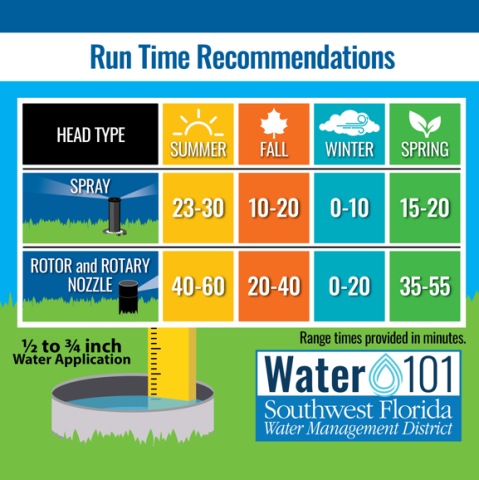During the summer months of June, July, August and September in Florida, yards need no more than ½ to ¾ inch of water every 2 to 3 days, which includes both rainfall and irrigation. The frequency and duration of watering will depend on several factors, such as the type of grass, soil conditions and local weather patterns. Here are some general guidelines:
How often can I water my lawn?
If your lawn hasn't received enough water from rainfall, watering twice a week is sufficient in most cases. However, adjustments may be necessary based on specific conditions and local watering restrictions. Generally, even addresses may water on Thursday and/or Sunday, while odd addresses may water on Wednesday and/or Saturday.
Currently, in Hillsborough, Pasco, and Pinellas counties, lawn watering is restricted to once per week. The designated days are determined by the last digit of your house number. Lawn watering days are as follows unless your city or county has a different schedule: ending in 0 or 1, you may water on Monday; ending in 2 or 3, on Tuesday; ending in 4 or 5, on Wednesday; ending in 6 or 7, on Thursday; and ending in 8 or 9, on Friday.
How long should I water my lawn?
When your lawn is in need of water, run your sprinkler system long enough to apply about ½ to ¾ inch of water per session. For manual watering, use a rain gauge or a tuna can to measure how long it takes to reach the desired amount of water.

What is the best time to water my lawn?
Early Morning: Watering early in the morning, between 4 and 10 a.m., is ideal. This allows water to soak into the soil and be absorbed by the grass before the heat of the day causes evaporation. Avoid watering in the evening to prevent prolonged moisture on the grass, which can lead to fungal diseases. The time of day you are allowed to water may be determined by local watering restrictions, so be sure to check.
